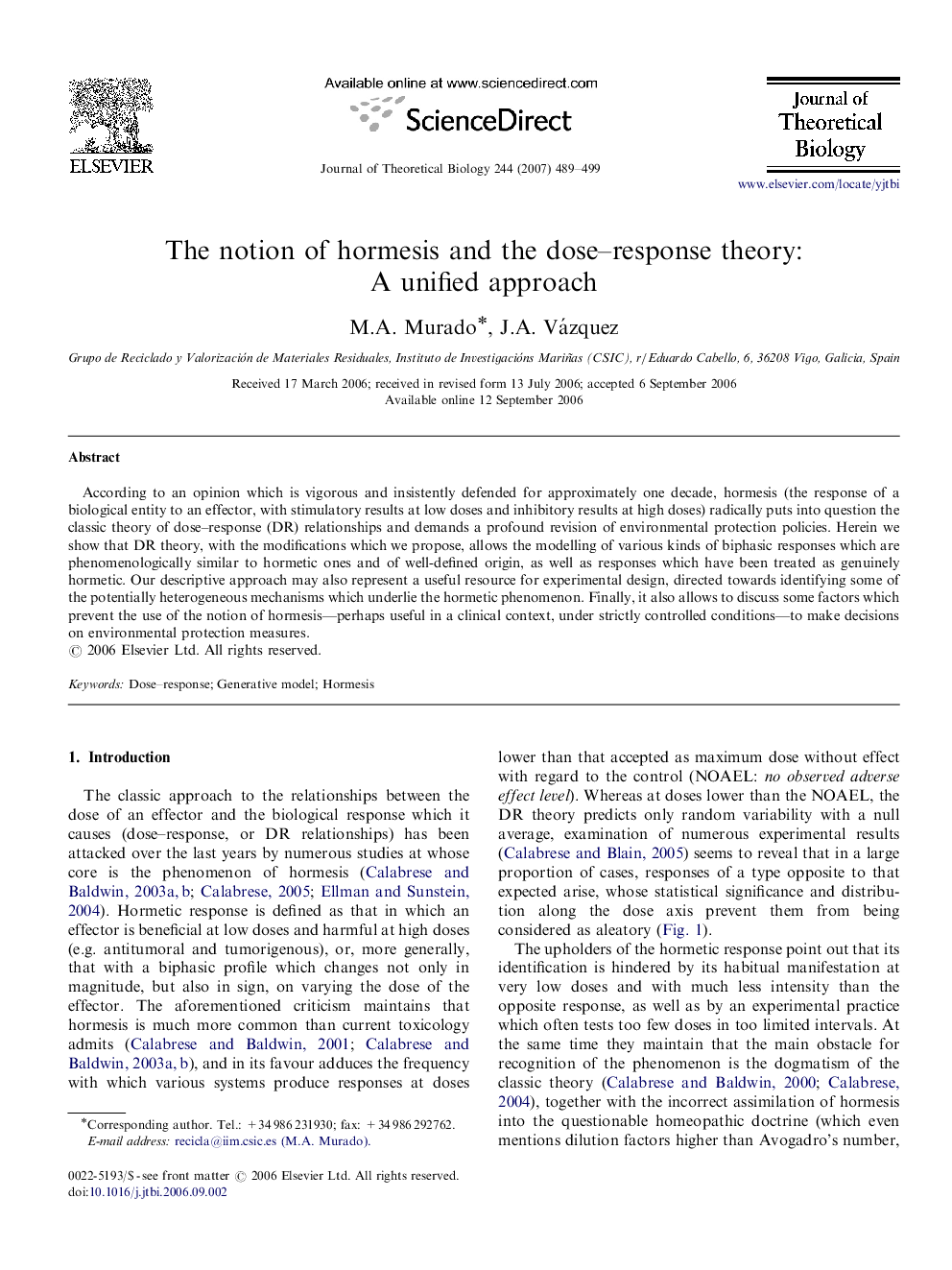| Article ID | Journal | Published Year | Pages | File Type |
|---|---|---|---|---|
| 4499257 | Journal of Theoretical Biology | 2007 | 11 Pages |
According to an opinion which is vigorous and insistently defended for approximately one decade, hormesis (the response of a biological entity to an effector, with stimulatory results at low doses and inhibitory results at high doses) radically puts into question the classic theory of dose–response (DR) relationships and demands a profound revision of environmental protection policies. Herein we show that DR theory, with the modifications which we propose, allows the modelling of various kinds of biphasic responses which are phenomenologically similar to hormetic ones and of well-defined origin, as well as responses which have been treated as genuinely hormetic. Our descriptive approach may also represent a useful resource for experimental design, directed towards identifying some of the potentially heterogeneous mechanisms which underlie the hormetic phenomenon. Finally, it also allows to discuss some factors which prevent the use of the notion of hormesis—perhaps useful in a clinical context, under strictly controlled conditions—to make decisions on environmental protection measures.
